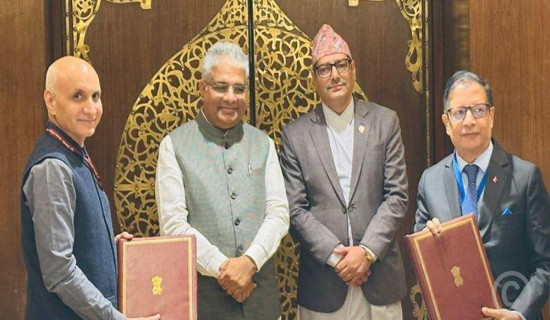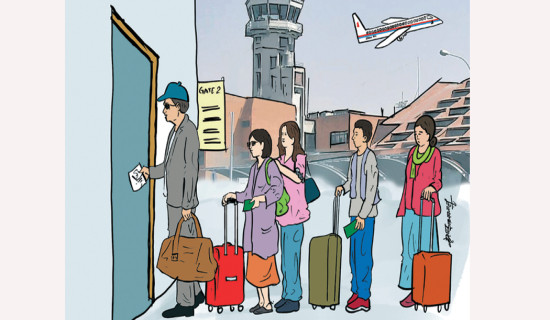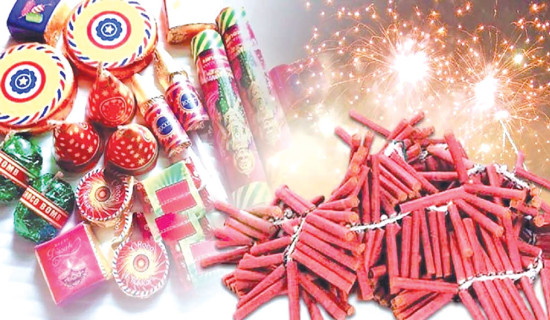- Thursday, 26 February 2026
Experts advise caution with electric appliances for fire safety at home
Kathmandu, Nov. 28: An electrical short circuit in a two-storey private house of Swabhiman Shrestha in Balkumari of Lalitpur damaged his and three other houses nearby on the night of November 21.
A Zumba Dance Centre, a pharmacy, a Paan stall and a momo shop operating next to Shrestha's house were also burnt down. In the incident, property worth above Rs. 5 million turned into ashes, according to Assistant Head Constable Rudra Prasad Gautam of Metropolitan Police Circle, Koteshwar.
Hundreds, if not thousands, of fire incidents destroy many houses in Nepal every year. The fires not only destroy property worth millions of rupees but also claim precious lives. In winter, house-fire incidents are common in core urban areas of the Capital and other cities.
Although many local governments within the Kathmandu Valley have even distributed household-type fire extinguishing machines managed from different sources, house-fire problems, especially in urban and core areas of the Capital and other cities, remain high every year, said experts. Fire engines are often kept without proper repair and maintenance making them dysfunctional during times of need.
The unregulated, widespread use of heating appliances has been a major cause of deaths and hospitalizations of many people in Nepal in recent years.
As heating technology is increasingly used by people, the risks attached to it are also growing, said fire expert Sundar Sharma, who is an under secretary at the National Disaster Risk Reduction and Management Authority of the Ministry of Home Affairs.
"Home and hotel accidents caused by fire are more likely to occur during winter time. A malfunctioning heating unit and a deficient ventilation system can lead to serious injuries, and in the worst case they result in death as well," Sharma said.
Although there is a lack of proper data concerning house fire accidents, research conducted by different agencies in Nepal showed that heating equipment like space heaters, water geysers, electric blankets, and others are the second major cause of domestic fires.
As expected, the majority of home fires break out in the months of December, January and February, he said.
Heating appliances come with several serious dangers that demand a safety protocol to be followed. However, unawareness regarding safety protocols is resulting in many unwanted incidents, he added.
Moreover, unsupervised use of heating appliances during winter seasons results in burns and bruises to children and pets. Therefore, appliances are to be kept at a safe distance from children, pets and other flammable objects that can easily catch fire. To prevent malfunctioning, regular maintenance from professionals is important, suggested Sharma.
Prolonged use of electrical heaters in closed settings without proper ventilation can lead to carbon monoxide poisoning. This causes headaches, nausea and dizziness among the users, warned Rukesh Shilpakar, director of Fire Engineering Solutions Pvt. Ltd.
“Any appliance can cause hazards but proper management is the key to safety. Be mindful while using the appliances, do not put the room heater on all night. The gas heater can heat the room properly within 2-3 hours and then you can turn it off.
The best thing to do is to turn off all electric appliances, not only the heater, when you go to sleep. This will protect us from unused energy consumption on one hand and protection from the potential hazard on the other,” said Shilpakar.
“Switching to electric heating is an option for better safety and the environment as well. Also, the discarding of these appliances will add to the waste management issue, so investing in a good heater with a long shelf-life and low energy consumption is a win-win for the economy and the environment,” concluded Shilpakar.







-square-thumb.jpg)








